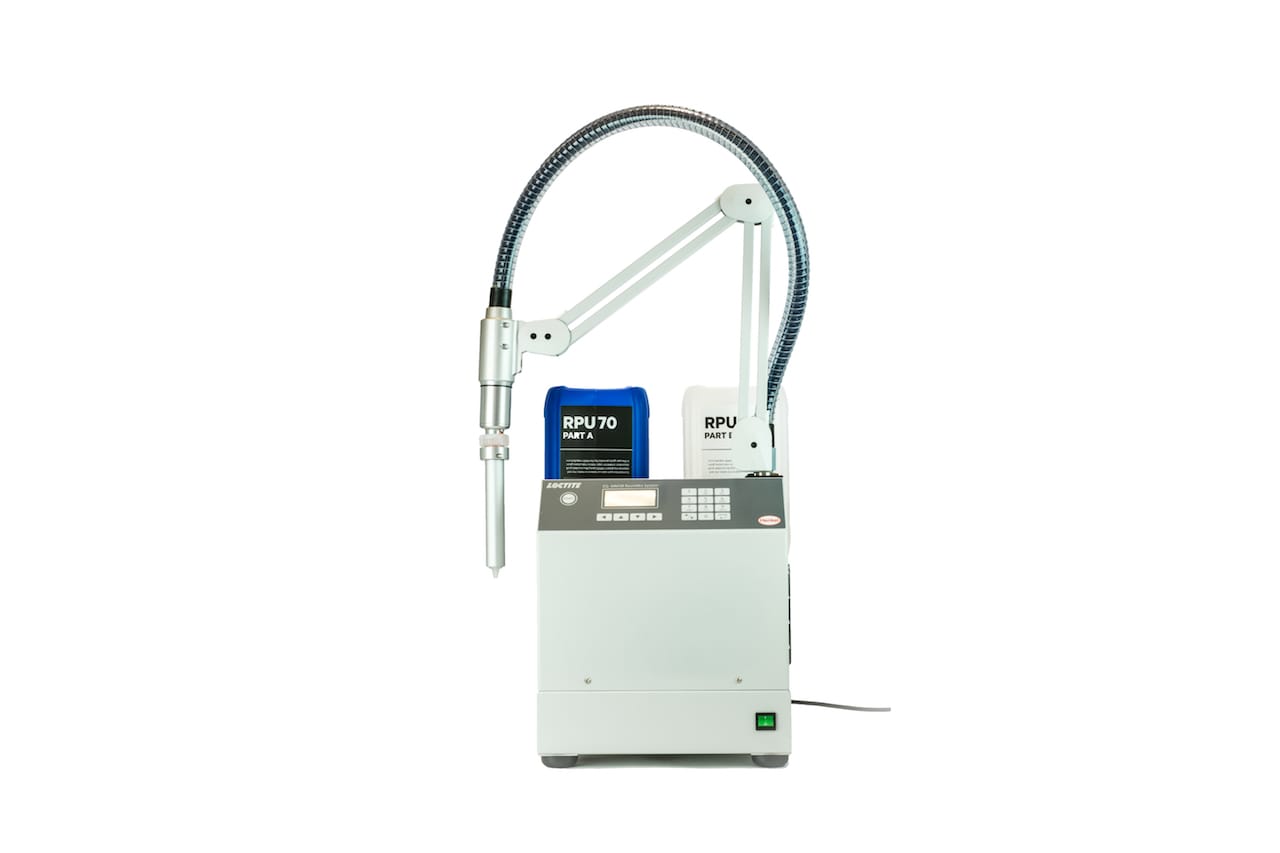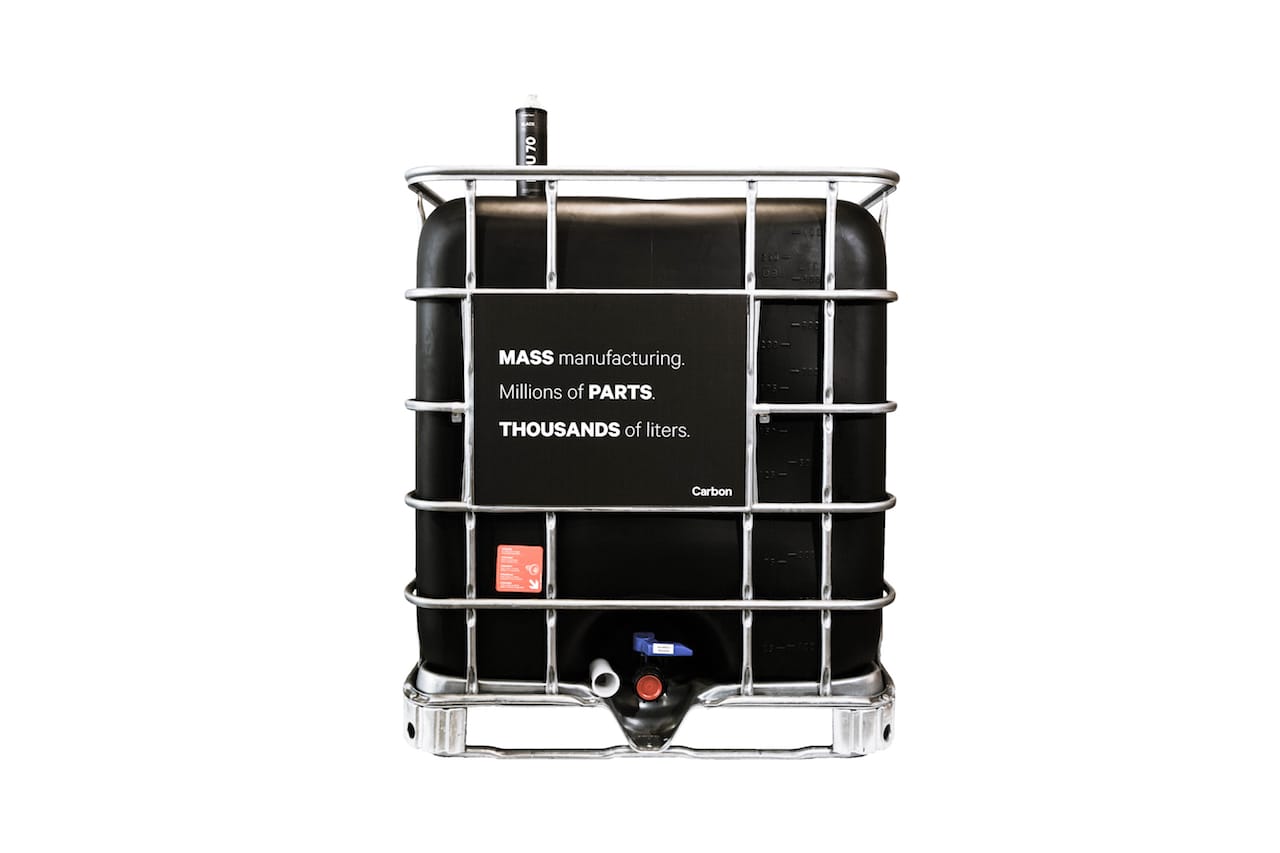
Carbon announced potentially significant changes to its materials program, including some new hardware.
Carbon’s CLIP technology is resin-based and requires the use of Carbon’s own powerful proprietary resins. Currently the company offers a reasonably wide variety of materials, including rigid, flexible and even dental-certified materials. All of these are sold through Carbon at prices some might consider premium, although they are designed specifically to optimize production of parts on Carbon’s equipment.
Carbon’s unique technology and growing network of providers attracts significant attention, and some manufacturing companies are beginning to set up production lines employing Carbon equipment. The most notable is Adidas, who are developing a futuristic midsole design that can only be made using 3D printing approaches.
But unlike other 3D printer manufacturers that typically sell one or a small handful of machines at a time, Carbon has been faced with Adidas and perhaps other companies buying large quantities of equipment, and this has generated the need for some additional technology to help processing.
Recently the company announced the SpeedCell, a kind of interconnect system that provides benefits when multiple Carbon machines are being used at high volume production rates. The first hardware element for the SpeedCell announced was a “Smart Part Washer”, which performs post processing in a rapid and consistent manner.
Now we come to today’s announcement, in which Carbon seems to be addressing another issue facing high volume production customers: material pricing.
They’ve announced a new materials program:
Carbon today announced a materials program that will offer some of its 3D printing polymer resins via bulk packaging, which will enable a 40 percent price reduction for high-volume manufacturers. The first material to be offered via bulk packaging will be RPU (rigid polyurethane) 70, which Carbon will initially sell for $150/liter, down from the current $250/liter. Working with its network of global supply chain partners and integrating novel approaches for dispensing and distributing resins to a fleet of printers, Carbon expects to further reduce the price to less than $100/liter over the next year, significantly increasing the addressable market for 3D manufactured parts.
This is very significant, as this brings the unit cost of production parts by a large factor, opening up the possibility of using the Carbon technology on a wider variety of end-user products. If the end-user product costs too much, it won’t sell, so with this announcement, the “line” of products just moved.
But wait, that’s not all. There is hardware to go along with this announcement.
Carbon also announced the MMD, another SpeedCell component. MMD stands for “meter mix and dispense”, which is essentially the purpose of this machine. It attaches to your Carbon 3D printers and allows for “proper dispensing of RPU 70 in bulk quantities”.
The MMD seems to be a materials dispenser, as you can see at top. Below you can see a bulk resin “tote” that should simplify operations.

To me, this sounds like a way to overcome the onboard resin capacity problems that might result from large scale production use. If all things are running well, an operator would still have to reload material into the machine periodically, but this labor could be reduced if a system provided some automation – and that’s what the MMD appears to be.
I haven’t seen pricing for the MMD yet, but no doubt it will be a subscription product from Carbon, as are the rest of the system elements.
It seems that Carbon is focusing strongly on providing a smooth and economic experience for manufacturers considering using Carbon’s equipment on a manufacturing line. That’s not a surprise, given the massive deal with Adidas; who wouldn’t want a few more deals like that, if you need only remove some of the barriers to production.
What’s Carbon’s next move? I suspect they will delve further into the automation of production by implementing additional equipment and programs.
Via Carbon

